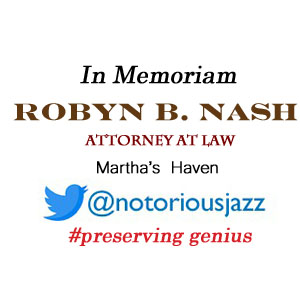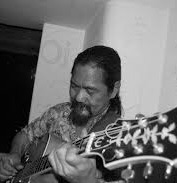
Daily Dose Of Jazz…
Edgar Avenir was born on May 25, 1950 in Diliman, Quezon City, Philippines. As a child he grew up in the University of the Philippines and lived in Area One of the campus. As a young guitarist, Avenir played with the renowned jazz pianist and composer Bong Peñera, and the Sangkatutak Band, whose members included Cariño, Ivy Violan and Richard Merk. His neighbors included Ed “Sarge” Cariño and John Lesaca, both of whom would later play with Avenir in various bands.
While he sessioned for pop acts like the Apo Hiking Society, his associations with fellow jazz musicians allowed him to explore the more eclectic side of his music. His move to jazz had him rubbing shoulders and exchanging notes with Pinoy jazzmen like Sandra Lim Viray, Jun Viray, Romy Posadas and Roger Herrera.
An excellent musician who could play with anyone, Avenir regularly performed with singer Zenaida Celdran and De la Calzada at La Cuisine Francaise in Makati. Celdran took care of Avenir in the last few months of his life. He was always willing to help fellow artists who wanted to learn more about music.
Still playing until August even though he was ill, guitarist Edgar Avenir, affectionately known as Koyang, died on Saturday, September 17, 2017 of pneumonia arising from lung cancer. He was 61.
More Posts: guitar,history,instrumental,jazz,music
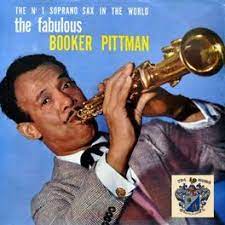
Daily Dose Of Jazz…
Booker Pittman was born on March 3, 1909 in Fairmount Heights, Maryland, was the son of Portia Pittman and a grandson of Booker T. Washington. He became an accomplished jazz clarinetist and played with greats like Louis Armstrong and Count Basie in the US and Europe in the 1920s and 1930s.
Leaving the States for the first time in 1933, he went with Lucky Millinder’s orchestra to France and stayed there for four years. During that period, he met a Brazilian musician named Romeo Silva, who took him on a tour of Brazil along with other musicians. They sailed to Bahia aboard the Siqueira Campos.
In 1937, Booker moved to Brazil, where he was known by the nickname “Buca“, and continued his musical career there, playing at the Urca Casino. He lived in Copacabana and befriended Jorge Guinle and Pixinguinha. He also played in Argentina and other countries.
He performed and recorded with his singer/actress stepdaughter Eliana Pittman. On October 19, 1969 clarinetist and saxophonist Booker Pittman, sometimes spelled Pitman, transitioned in his home in the São Paulo quarter of Vila Nova Conceição of laryngeal cancer at the age of 60. On behest of his wife Ofélia he was transferred to Rio de Janeiro and there laid to rest at the Cemitério São João Batista in the quarter of Botafogo.
More Posts: clarinet,history,instrumental,jazz,music,saxophone
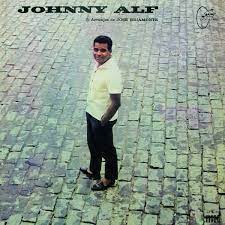
Daily Dose Of Jazz…
Johnny Alf was born Alfredo José da Silva on May 19, 1929 in Vila Isabel, Rio de Janeiro, Brazil and began playing piano at age 9. His father died when he was 3 and was raised by his mother, who worked as a maid to raise him. He attended Colégio Pedro II, receiving support from his mother’s employers who had appreciation for music. He was enrolled at the IBEU, Instituto Brasil-Estados Unidos, and it was there that he received his first formal musical training, studying classical piano with instructor Geni Bálsamo.
Influenced by Nat King Cole and George Sheaing, Frank Sinatra, Bing Crosby and Brazilian born Dick Fame, he eventually gained membership into the Sinatra~Farney Fan Club, a performers collective. Alf’s membership allowed him regular access to a piano as well as a group of musically sympathetic peers with which to play and experiment. They would finally get the payless opportunity to play in a few well known venues.
By 1950 he was pursuing a professional musical career and received his first professional break in 1952 when he was hired as the pianist at the newly inaugurated Cantina do César, owned by the popular radio host César de Alencar. With free musical reign. Johnny would receive frequent visits from pianist João Donato, vocalist Dolores Duran, and guitarist/vocalist João Gilberto who would sit in on the way to their gigs.
He would begin to combine Samba-cançãoes and foxtrots with American jazz styles. He would go on to record his first two albums, however, the recordings garnered no more than a pittance of recognition for Alf at the time, but would later in the early Sixties be hailed as the progenitors of the Bossa Nova style.
He continued to find nightly work in the Rio clubs and work with musical companions João Gilberto, João Donato, and the young pianist Antonio Carlos Jobim, all following him from venue to venue provided they could afford the cover fee. By 1954 he was performing regularly at the Hotel Plaza nightclub. Due to its haunted reputation Johnny was able to play his own compositions plus hold early evening jam sessions and these improvisatory collaborations that the harmonic and rhythmic structures eventually blossomed into the style now known as Bossa Nova.
Moving to Sao Paulo in 1955 he became the house pianist at a new club, Baiúca and formed a short-lived duo with double-bassist Sabá. Unfortunately the group only established a moderate following before Baiúca was closed down for health-code violations. In 1961 he declined the invitation to play at Carnegie Hall’s historic Bossa Nova Festival because he didn’t like the connotation bossa nova brought with it. That decision sent him towards obscurity and very little was heard from Alf, although he infrequently produce albums throughout the 60s and early 70s. He would continue to collaborate, record and perform to earn a living and eventually landed a position at a local conservatory of music.
Pianist, vocalist, composer and educator Johnny Alf, who is widely considered the Father of Bossa Nova, transitioned from complications caused by prostate cancer on March 4, 2010 in Santo Andre, just outside São Paulo, Brazil. This was his home for the last fifty years of his life. He left no immediate survivors.
More Posts: bandleader,club,history,instrumental,jazz,music,piano,vocal
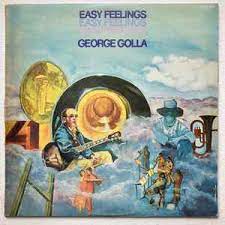
Daily Dose Of Jazz…
George Golla was born May 10, 1935 in Chorzów, Poland. He emigrated to Australia in the 1950s and began working in Sydney from 1957. Two years later he commenced a long-term musical partnership with the clarinetist, flautist and saxophonist Don Burrows that continued for nearly forty years.
Recording frequently in duo, quartets and other combinations, they nurtured and featured many young talents, including brassman and multi-instrumentalist James Morrison, guitarist Guy Strazzullo, drummer David Jones and others.
As educators they taught at the New South Wales Conservatorium and Golla was a teacher at the Academy of Guitar in Bondi alongside Don Andrews. He specialized in jazz and classical guitar and has written several books on theory, scales and the modes.
George toured frequently throughout Australia, playing on-call with international artists such as vibraphonist Gary Burton in the early 1970s. He has had a long association with Luis Bonfa and other Brazilian musicians. He has made hundreds of recordings, including The Don Burrows Quartet at the Sydney Opera House, Cherry Pie 1017 & 1032, and Steph’n’Us, with Stephane Grappelli during a tour with Grappelli and Burrows.
Guitarist George Golla, at 85, continues to perform in and around Sydney with flugelhorn player and singer songwriter Elizabeth Geyer, and tours interstate and internationally, records and conducts workshops.
More Posts: bandleader,guitar,history,instrumental,jazz,music
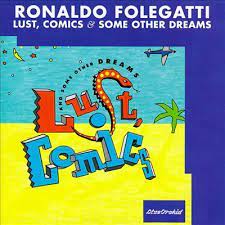
Daily Dose Of Jazz…
Ronaldo Folegatti was born on April 30, 1958 in Rio de Janeiro, Brazil and started playing the guitar at age 10. He studied mathematics and received a master’s degree in science.
When he was twenty-two, he moved to Germany and started a career in music. He released his debut album, Sound of Watercolors, in Germany in 1990. He recorded his sophomore album, Lust, Comics & Some Other Dreams, with Till Brönner and Ronnie Stevenson. The album crossed several genres including jazz, big band, free jazz, and Brazilian.
In 1995 he returned to Brazil and five years later recorded two more albums, Mazy Tales and Anjos & Estrellas. In 2005 he released Jamming! with guest appearances by Randy Brecker, Will Lee, Joel Rosenblatt, Zé Canuto, Teo Lima, Marcelo Martins, and Ada Rovatti. Composer, guitarist, and record producer Ronaldo Folegatti, who had been treated for cancer for two years, transitioned on August 1, 2007, Teresópolis, Brazil.
More Posts: bandleader,composer,guitar,history,instrumental,jazz,music,record producer





